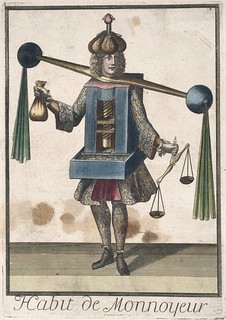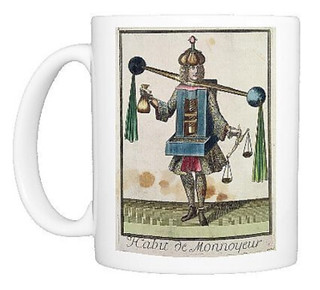
PREV ARTICLE
NEXT ARTICLE
FULL ISSUE
PREV FULL ISSUE
MORE ON THE MINTER'S COSTUME
Daniel Demeo writes: "It matters little, but the artist is anonymous. With a costume like that, a sure winner on Halloween, but is he giving treats from his sack of coins? Here's the link
to the museum association:
Actually, it turns out that while that museum didn't know who the artist was, he's not anonymous after all. The work was part of a well-known series. -Editor Ron Haller-Williams writes: "A Google search on the exact phrase of the French wording (i.e. "habit de monnoyeur" - INCLUDING the quotes!) reveals all: Nicolas de Larmessin (or L’Armessin)
has sons, TWO of them confusingly also called Nicholas. Both the sons worked on a series "Les Costumes Grotesques: Habits des métiers et professions". This item,
a copper engraving, was published in 1695. There seem to be several different sizes. To see some more in the series, take a look at
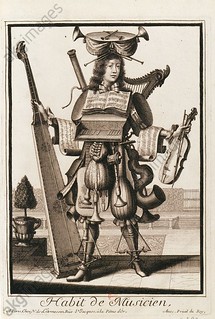 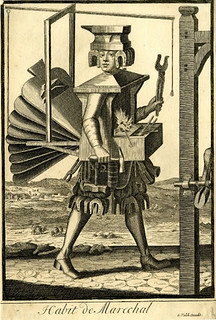 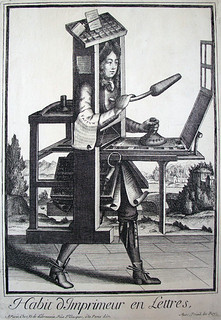 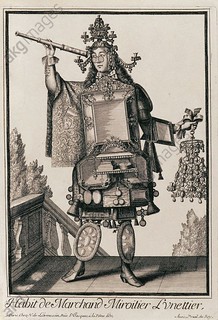 References:
Fancy the image on a mug? Ron even found one of those. Thanks, everyone! -Editor To read the earlier E-Sylum article, see:
Anne noted: "It could definitely serve as a Halloween costume in the times of social distancing!" Well, some old-time clothing fads were in fact a means of keeping people apart. Certain people, anyway. See this article on "The fashionable history of social distancing." -Editor 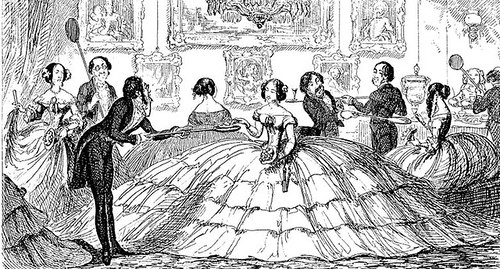
A satirical comic pokes fun at the ballooning crinolines As the world grapples with the coronavirus outbreak, "social distancing" has become a buzzword of these strange times. Fashion might not be the first thing that comes to mind when we think of isolation strategies. But as a historian who writes about the political and cultural meanings of clothing, I know that fashion can play an important role in the project of social distancing, whether the space created helps solve a health crisis or keep away pesky suitors. Clothing has long served as a useful way to mitigate close contact and unnecessary exposure. In the past, maintaining distance – especially between genders, classes and races – was an important aspect of social gatherings and public life. Social distancing didn’t have anything to do with isolation or health; it was about etiquette and class. And fashion was the perfect tool. Take the Victorian-era "crinoline." This large, voluminous skirt, which became fashionable in the mid-19th century, was used to create a barrier between the genders in social settings. While the origins of this trend can be traced to the 15th-century Spanish court, these voluminous skirts became a marker of class in the 18th century. Only those privileged enough to avoid household chores could wear them; you needed a house with enough space to be able to comfortably move from room to room, along with a servant to help you put it on. The bigger your skirt, the higher your status. In the 1850s and 1860s, more middle-class women started wearing the crinoline as caged hoop skirts started being mass-produced. Soon, "Crinolinemania" swept the fashion world. To read the complete article, see:
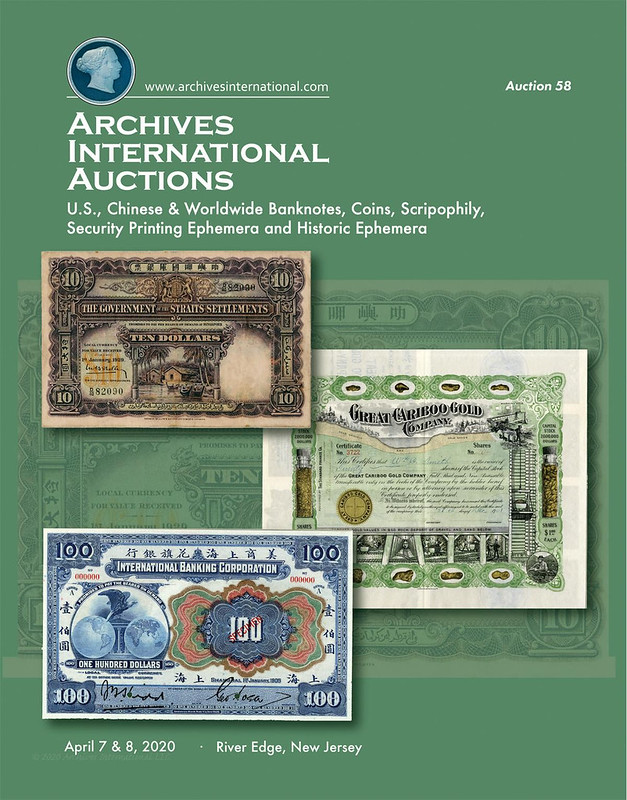 Wayne Homren, Editor The Numismatic Bibliomania Society is a non-profit organization promoting numismatic literature. See our web site at coinbooks.org. To submit items for publication in The E-Sylum, write to the Editor at this address: whomren@gmail.com To subscribe go to: https://my.binhost.com/lists/listinfo/esylum All Rights Reserved. NBS Home Page Contact the NBS webmaster 
|
